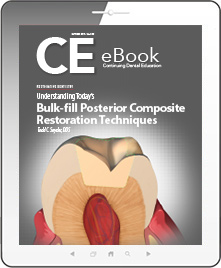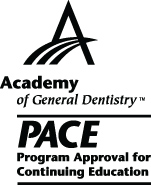CDEWorld > eBooks > Understanding Today's Bulk-fill Posterior Composite Restoration Techniques


ADA CERP is a service of the American Dental Association to assist dental professionals in identifying quality providers of continuing dental education. ADA CERP does not approve or endorse individual courses or instructors, nor does it imply acceptance of credit house by boards of dentistry. Concerns or complaints about a CE provider may be directed to the provider or to ADA CERP at www.ada.org/cerp/

Approved PACE Program Provider. FAGD/MAGD credit. Approval does not imply acceptance by a state or provincial board of dentistry, or AGD endorsement. 1/1/2023 to 12/31/2028. ID # 209722.
eBook
Released: Thursday, October 19, 2017
Expires: Saturday, October 31, 2020
Understanding Today's Bulk-fill Posterior Composite Restoration Techniques
By Todd C. Snyder, DDS
Commercial Supporter: Parkell
The most common challenges associated with conventional direct composite restorations include the time- and labor-intensive nature of adapting the composite material to tooth structure and previously placed composite layers to help ensure restorative success. Selecting and performing the proper bulk composite placement technique based on cavity/preparation depth remains essential to long-treatment functionality. This article reviews the characteristics of bulk-fill composites and outlines technique recommendations for preventing polymerization shrinkage, postoperative sensitivity, and microleakage.
LEARNING OBJECTIVES:
-
Discuss the reasons traditional direct posterior composite restorations must be incrementally layered.
-
Explain the significance of the C-factor to posterior restoration success.
-
Describe techniques for placing posterior restorations using bulk-fill composites.
-
Discuss the benefits of dual-cure bulk-fill composites.
About the Author
Todd C. Snyder, DDS
Private Practice, Laguna Niguel, California


